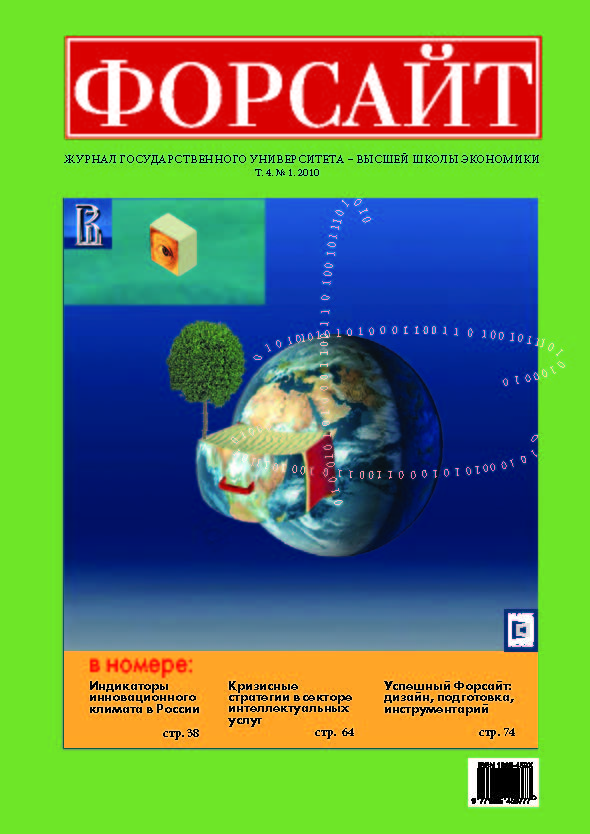Abstract
Сontemporary innovation policies are based mostly on the results of statistical and sociological studies for companies and expert surveys. However, the problem of motivating innovation activity is unlikely to be solved without taking into consideration the peculiarities of people’s attitude to science, technology and education, which can be identified as areas which provide a basis for innovative development. The author analyses the views of general public about technologies, competitiveness, prestige of S&T occupations, allied government policies and prospects of innovation. The results of representational studies of public awareness of S&T and Innovation implemented in Russia and elsewhere were used to perform this analysis.
References
Eurobarometer 224 (2005а) Europeans, Science and Technology. Office for Official Publications of the European Communities. Luxembourg.
Eurobarometer 225 (2005б) Social values, Science and Technology. Office for Official Publications of the European Communities. Luxembourg.
Eurobarometer 236 (2005в) Population Innovation Readiness. European Commission, Research Directorate-General, CORDIS. Luxembourg.
Eurobarometer 55.2 (2001) Europeans, Science and Technology. Office for Official Publications of the European Communities. Luxembourg.
Gokhberg L., Shuvalova O. (2004) Russian Public Opinion of the Knowledge Economy: Science, Innovation, Information Technology and Education as Drivers of Economic Growth and Quality of Life. British Council.
Harris Interactive (2009) http://www.harrisinteractive.com/harris_poll/pubs/Harris_Poll_2009_08_04.pdf.
National Science Board (2008) Science and Engineering Indicators -2008. US Government Printing Office. Washington.
Rokeach M. (1973) The Nature of Human Values. The Free Press. N.Y., L.
Schwartz S.H., Bilsky W. (1987) Toward a Universal Psychological Structure of Human Values//Journal of Personality and Social Psychology. Vol. 53.
Schwartz S.H., Bilsky W. (1990) Toward a Theory of the Universal Content and Structure of Values: Extensions and Cross Cultural Replications//Journal of Personality and Social Psychology. Vol. 58.
Гохберг Л.М., Кузнецова И.А. (2009) Инновации в российской экономике: стагнация в преддверии кризиса?//Форсайт. № 2(10).
Гохберг Л.М., Шувалова О.Р. (1998) Общественное мнение о науке: 1997. М.: ЦИСН.
Динамика ценностей населения реформируемой России (1996)/Л.А. Беляева, Н.И. Лапин (ред.). М.: Эдиториал УРСС.
Индикаторы инновационной деятельности: 2008 (2008) Статистический сборник. М.: ГУ-ВШЭ.
Индикаторы науки: 2007 (2007) Статистический сборник. М.: ГУ-ВШЭ.
Лапин Н.И. (2009) Ценности «сохранение -открытость изменениям» и сетевые инновационные институты//Общественные науки и современность. № 5.
Лебедева Н.М., Ясин Е.Г. (2009) Культура и инновации: к постановке проблемы//Форсайт. № 2(10).
ОЭСР (2002) Преодоление инновационного отставания в России. Хельсинкский семинар. Март 2001. М.: Изд-во РУДН.
Соколов А.В. (2009) Будущее науки и технологий: результаты исследования Дельфи//Форсайт. № 3(11).
Шувалова О.Р. (2008) Нужны ли населению научные знания?/Доклады III Всероссийского социологического конгресса. М.: Институт социологии РАН. http://www.isras.ru/publications_bank/1225368863.pdf.

This work is licensed under a Creative Commons Attribution 4.0 International License.

